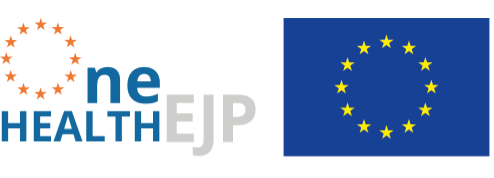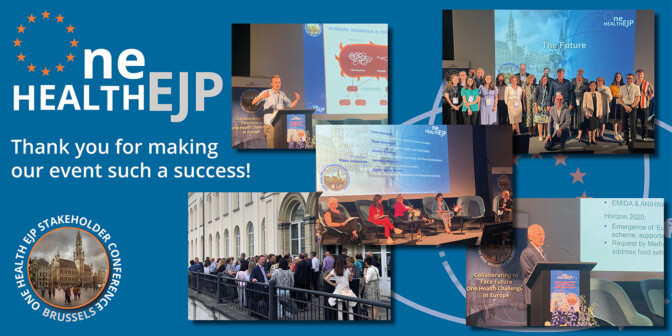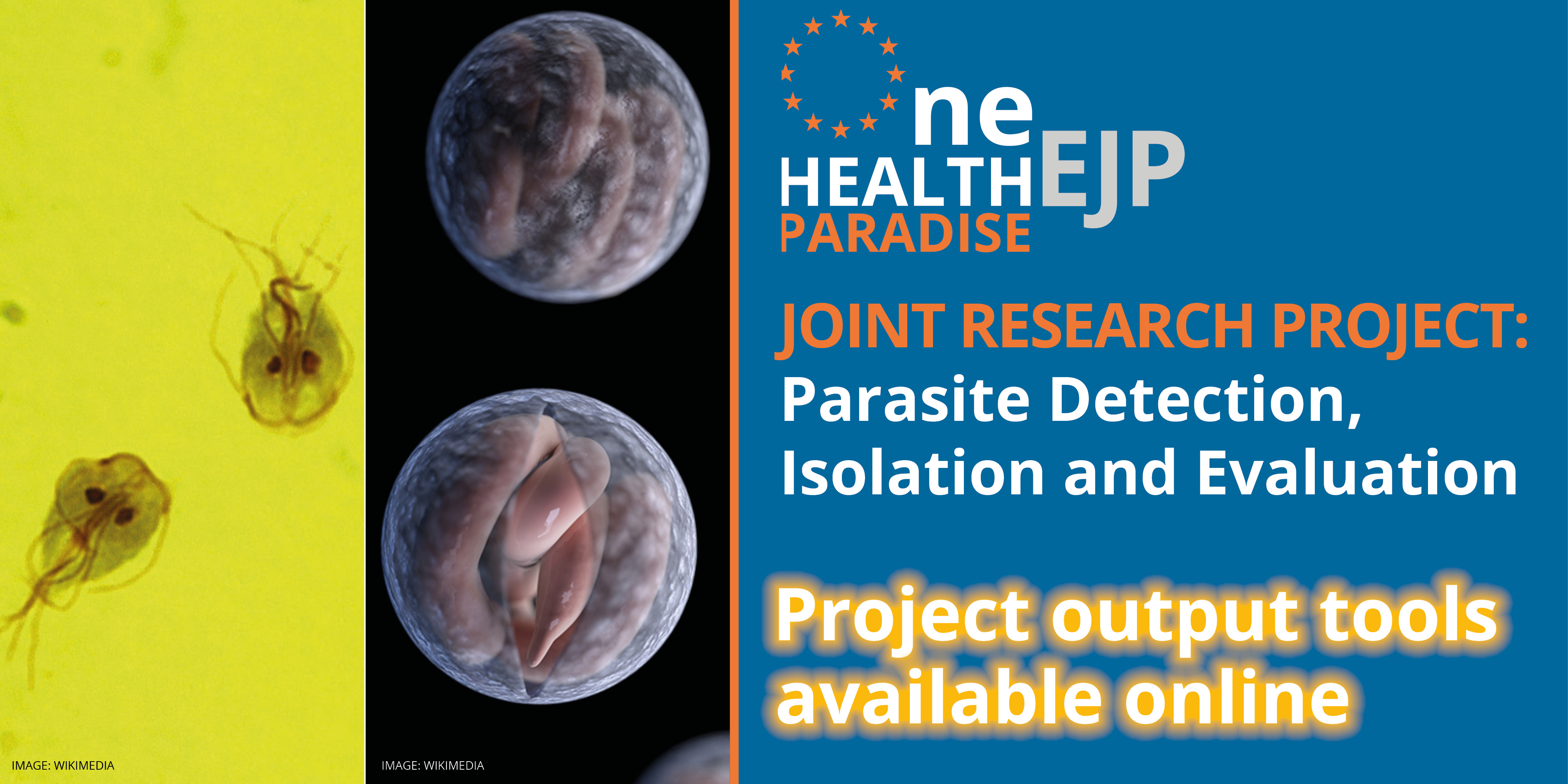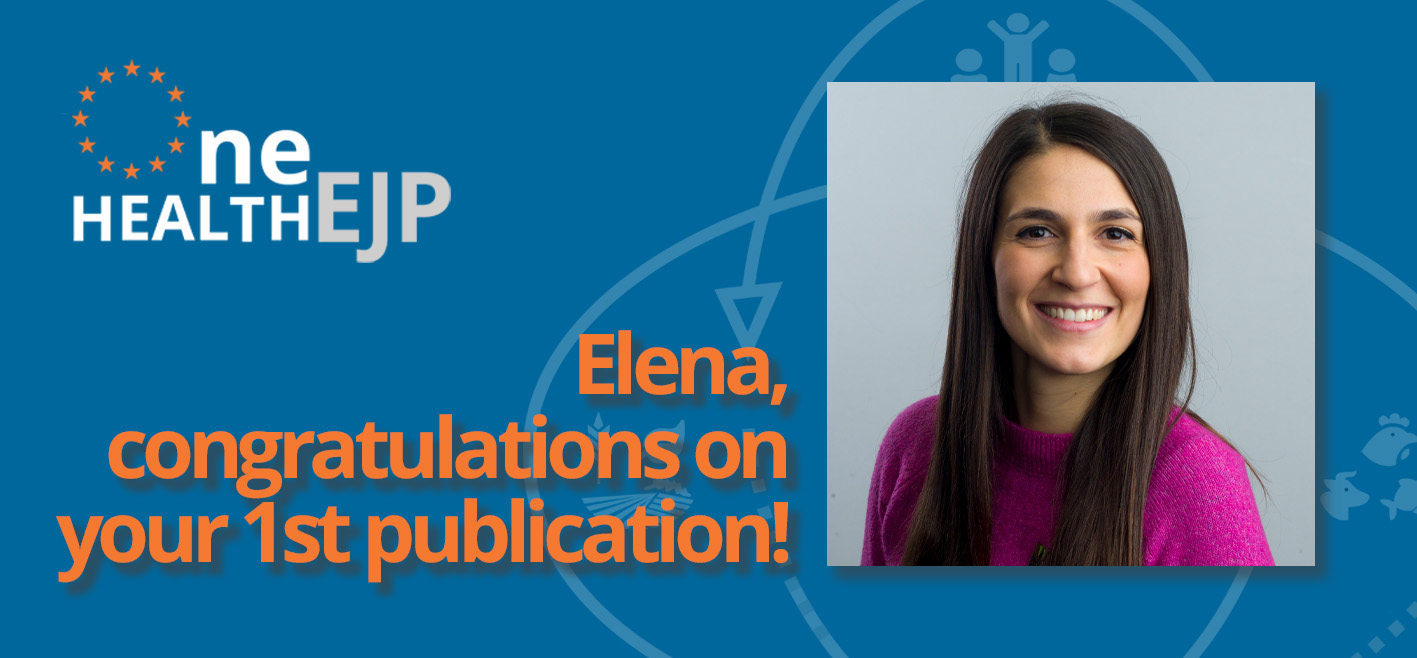We celebrate the success of the One Health EJP Conference 2023!
Thanks to all invited speakers, both internal and external to our Consortium, for sharing their insights on the future of One Health in Europe and beyond at our impactful three-day conference for stakeholders in Brussels. Our wide range of speakers included Directorate-Generals and senior representatives of EU and international agencies, scientific research institutes, pharmaceutical, veterinary, public health, environment and consumer organisations, in addition to One Health EJP scientists and leaders.
The conference enabled our Consortium members to demonstrate the scientific impact of One Health EJP work by explaining how our outputs and outcomes align with the needs of our stakeholders across Europe. We highlighted how OHEJP Joint Integrative Projects COVRIN, MATRIX, OH-HARMONY-CAP, CARE, ORION, COHESIVE and also SIMEX led to cross-sector harmonisation of One Health approaches to benefit prevent-detect-response and surveillance activities in Europe. Eleven OHEJP Joint Research Project shared the outcomes and practical applications of their research to develop innovative solutions to the health threats of antimicrobial resistance, foodborne zoonoses and emerging threats. We also described the relevance of our extensive science to policy translation actions.
Other conference sessions addressed a wide variety of topics including: the concerns of society and consumers about One Health issues; involvement of the environment, social sciences, and the private sector in One Health activities; new One Health trajectories of EU agencies; measures to strengthen Global Health Security Processes, and the innovative technologies available for better preparedness and response to health crises.
Some key messages from the conference sessions included:
One Health Education: It is important to tailor education and training to a wider audience and include environmental aspects.
One Health in Europe from theory to practice: The breaking down of silos is essential and has already led to some good outcomes, but challenges remain to put ideas into practice, which requires a more integrated approach.
Beyond Classic One Health: Involve social scientists in One Health, as knowledge of human behaviour will help to inform public engagement activities. The environment must be better incorporated in One Health. This idea to use nature based solutions to tackle issues of climate change, biodiversity loss and pollution that pose health threats across species and ecosystems.
The Future for an inclusive One Health: Further develop interdisciplinary collaborations that include a greater variety of professionals to broaden the scope of One Health. This also requires increased education opportunities and wider research funding for encouraging innovation.
At this conference, we also explained how our involvement and connection with the Med-Vet-Net Association will enable the legacy of our work to continue once the One Health EJP programme finishes in September 2023. The SRIA provides the plan for One Health EJP sustainability to ensure our scientific research has impact over the remainder of this decade and beyond.
We appreciate the fantastic engagement by our international participants who attended in person or online, as their questions and comments encouraged further debate on the One Health topics discussed. The conference attendance included 122 on site and several hundred online participants over the three-day period.
We also thank the key organisers at the following institutions Bundesinstitut für Risikobewertung (BfR), Statens Serum Institut (SSI), Agence nationale de sécurité sanitaire – Anses, Sciensano, Istituto Superiore di Sanità (ISS) and University of Surrey, for their contributions to ensure the success of this event.
Overall, we anticipate that our conference will help to broaden One Health collaborations across sectors and societies for contributing to future One Health initiatives.
The future of One Health depends upon courage, collaboration, cooperation and compliance!






